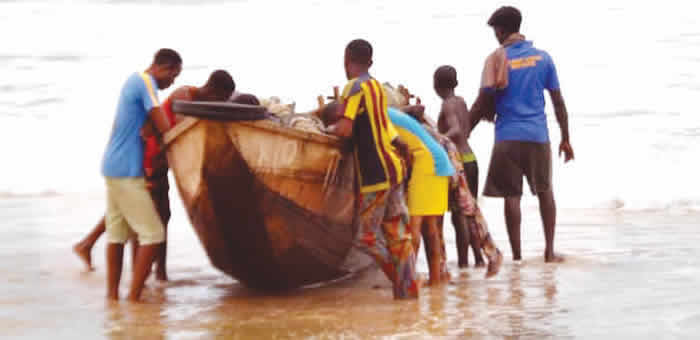In the wake of devastating flooding that struck Maiduguri and surrounding areas, local fishermen and fish dealers are experiencing an unexpected economic boom. As farmers and residents assess their losses from the floods, those in the fishing industry have capitalized on the influx of fish into the waterways. Reports from the Kwoshebe area of Mafa Local Government reveal a surge in fishing activity, with children, women, and youth using a variety of techniques, such as baiting and netting, to harvest abundant fish from the flooded areas. This scenario has transformed the local economy, enabling many to turn a profit from a situation that has devastated others.
Fish dealer Abdullahi Dahiru explained how he operates in this new economic landscape. He purchases fish directly from local fishermen as they haul their catches from the water. He noted that prices vary based on size and type; while he buys fish at wholesale rates in the village, their retail price changes once taken into town. With basins costing between 7,000 and 18,000 naira depending on the fish size being sold, the profitability of this venture is evident. For Dahiru and others in the fish business, the current market offers a lucrative opportunity to enhance their earnings significantly.
Another fish dealer, Kabiru Muhammed, highlighted the importance of the post-flood fishing boom for his livelihood. Since the floodwaters began to recede, he has been able to operate efficiently by transporting fish in two cars to maximize his haul each day. His profitability has soared, demonstrating how he has made substantial financial gains during this period. Muhammed expressed hope that the ongoing fishing opportunities would continue to provide for him and his family, helping to offset the losses they suffered due to flooding.
For the local fishermen and women, the changes in their economic circumstances are palpable. Many are dedicating their time to fishing both day and night, significantly increasing the volume of fish they catch. Adamu Aji, a local fisherman, has turned fishing into a full-time job for his family, regularly checking overnight traps and involving his son in the baiting process. He noted that the recent conditions have drastically improved their fishing outcomes, with plentiful catches each day becoming the norm. Aji’s optimism is shared throughout the fishing community, as they look to make a sustainable living from the abundant resources available.
Fati Muhammad adds a personal touch to this narrative, sharing how her family’s economic situation has changed since the floods. As a mother of two, she has witnessed an improvement in her standard of living, fully relying on her daily earnings from fishing. Despite the challenges that fishing poses, Muhammad has been able to bring home between 5,000 and 7,000 naira per day, illustrating a significant recovery from previous lean seasons. For her, the ongoing fishing opportunities represent more than just financial gains—they signify resilience and adaptability in the face of adversity.
Ultimately, the flood’s aftermath has created a paradoxical situation, where the destruction of agricultural lands has led to newfound wealth for those involved in fishing. While the devastation has left many residents grappling with loss, the surge in fishing activity offers a glimpse of hope and recovery for some. As the region deals with the consequences of flooding, the growing fish market stands out as a beacon for economic revitalization, bridging the gap between hardship and prosperity for local families who have embraced the opportunity presented by nature’s unexpected bounty.














